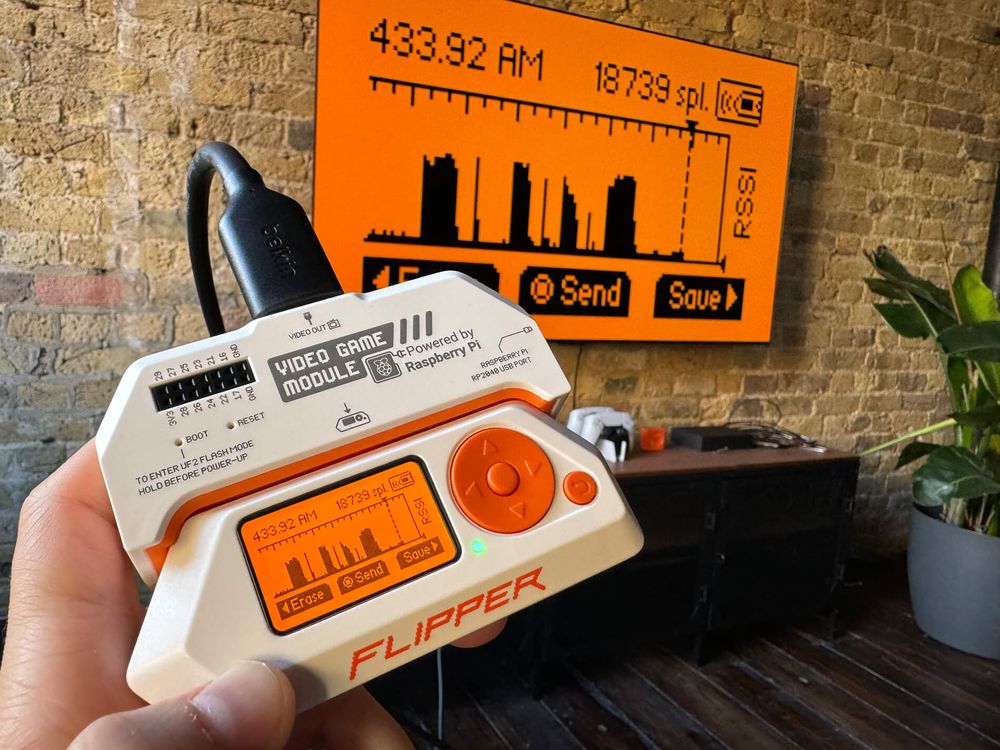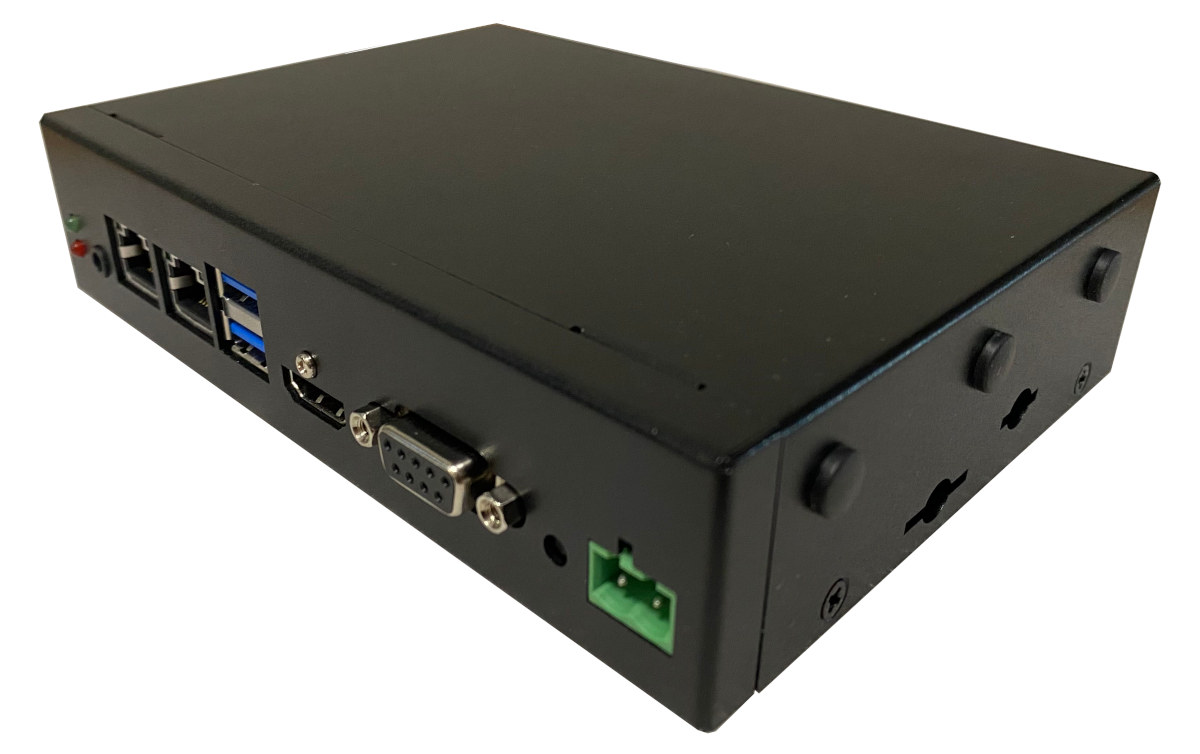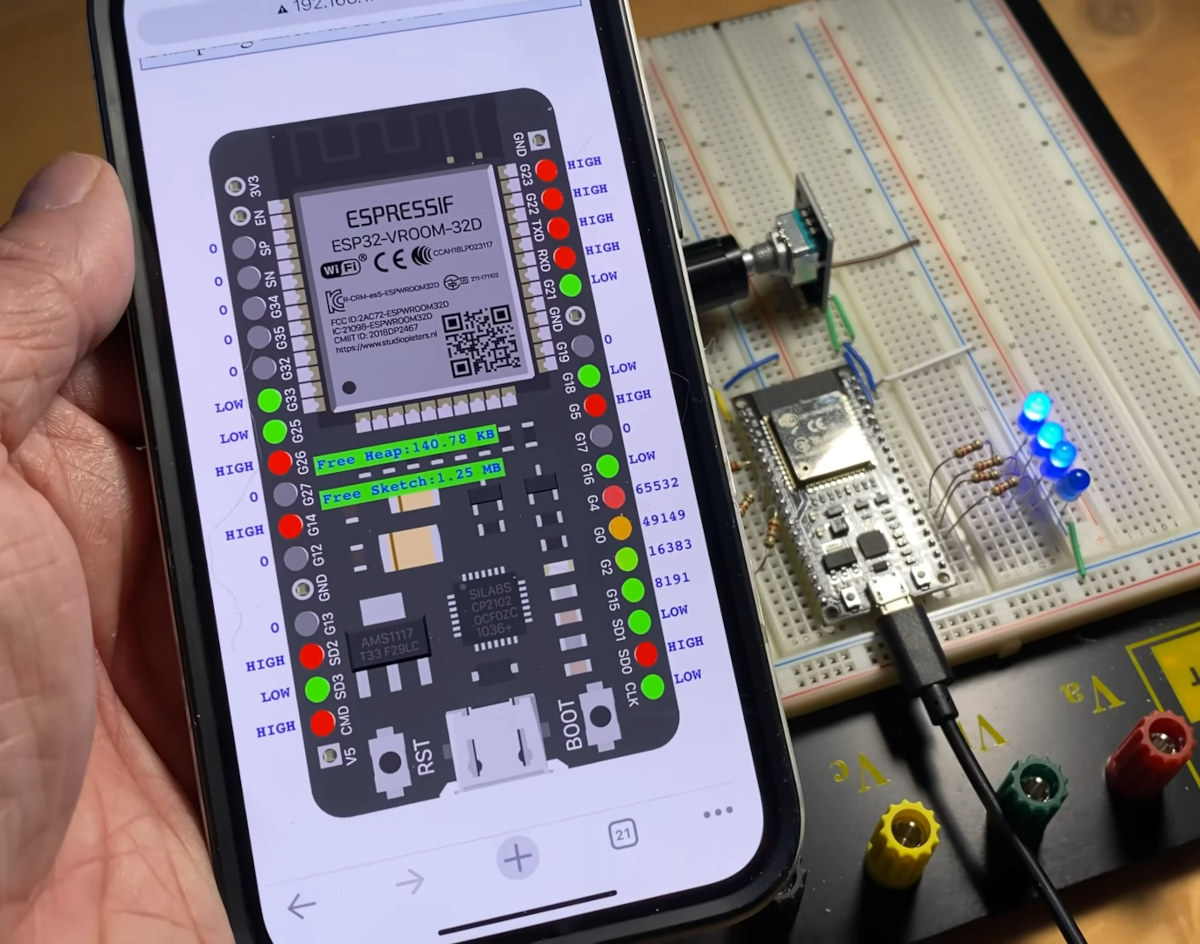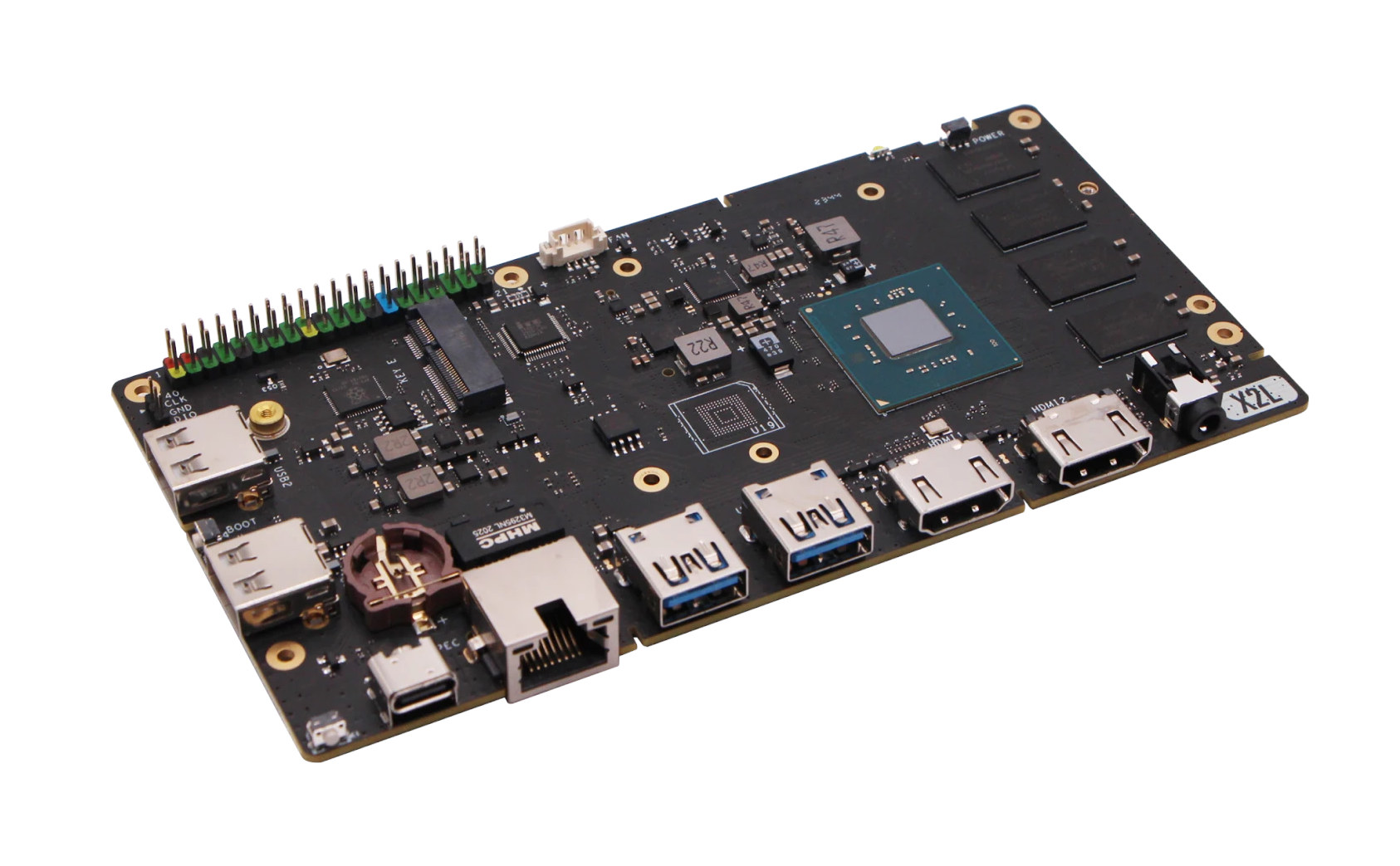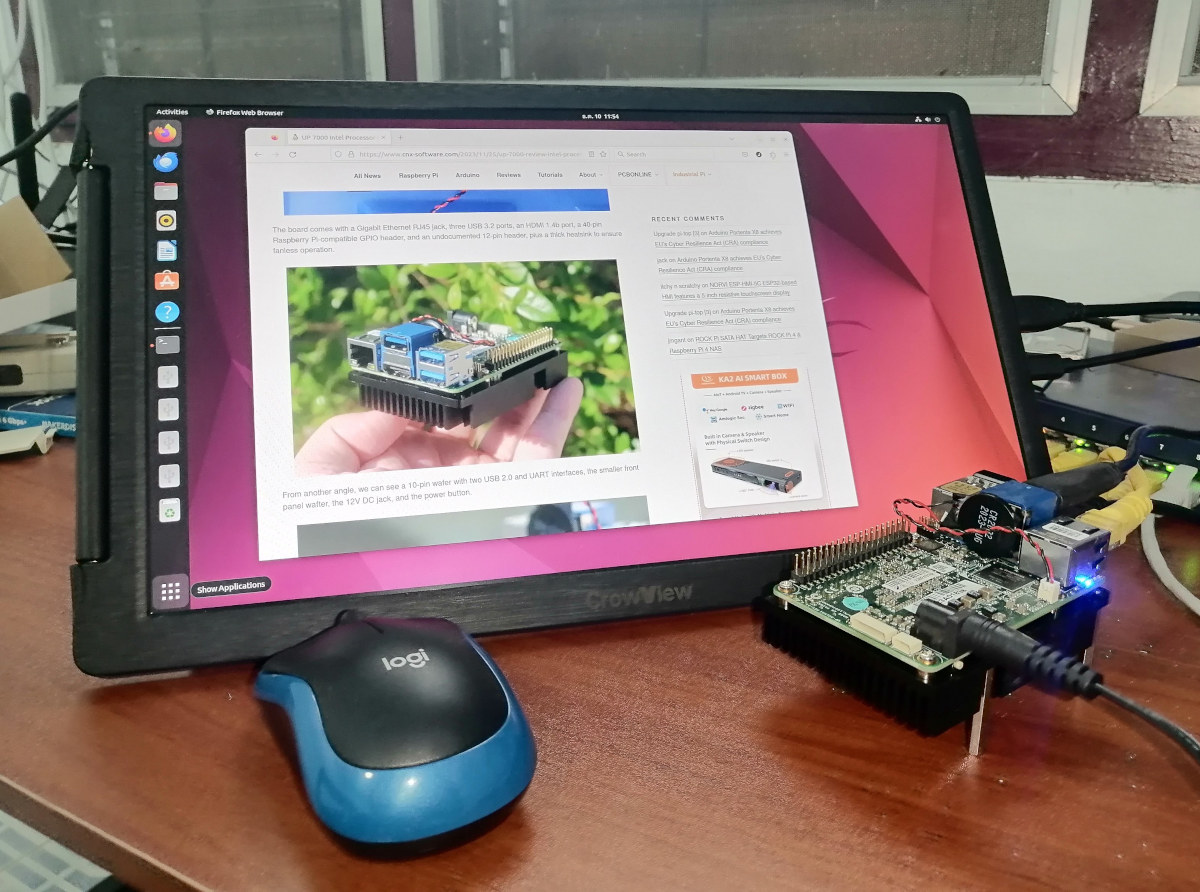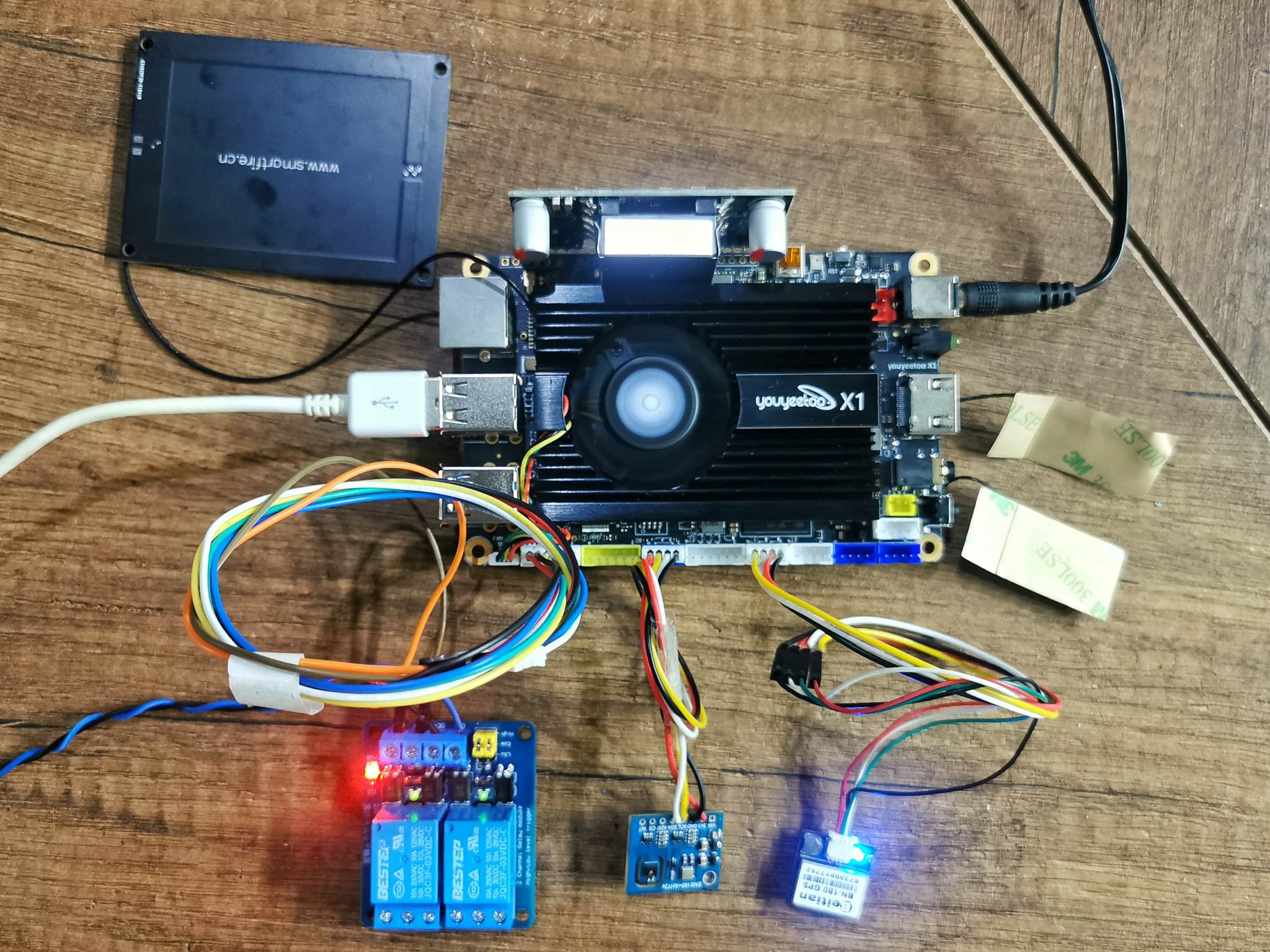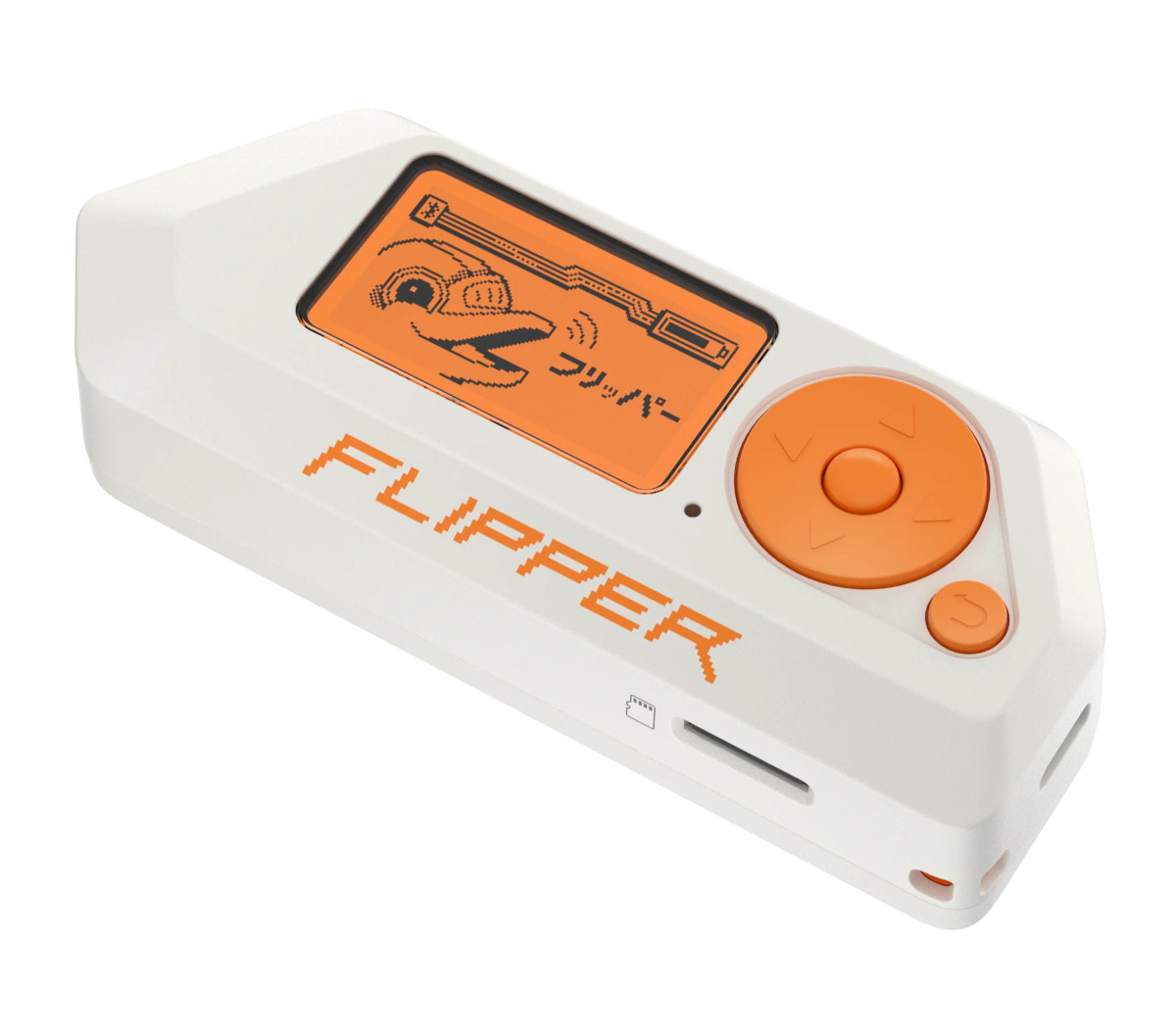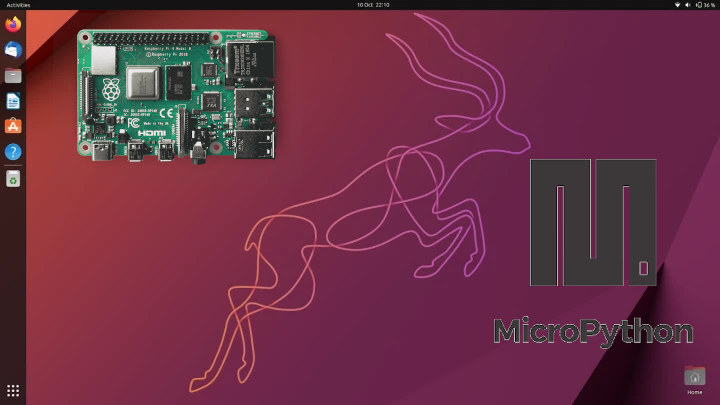Flipper Zero hardware & wireless hacking tool can now be used as a proper game console thanks to a Raspberry Pi RP2040-powered video game module that mirrors the display of the device on a larger monitor or TV via DVI/HDMI video output, and also adds a 6-axis motion tracking sensor. The Flipper Zero has been in the news in recent days, notably with Canada’s government banning the device due to car theft (although it only seems feasible on older cars), and today the company has announced the launch of a video game module developed in collaboration with Raspberry Pi Ltd. Video game module specifications: MCU – Raspberry Pi RP2040 dual-core Arm Cortex-M0+ microcontroller clocked up to 133 MHz with 264 kB SRAM Video Output – DVI-D at 640х480 with 60 Hz refresh rate. It also supports HDMI. USB – USB Type-C port connected to the microcontroller. Acts as a USB device […]
PANZER-PLUS fanless AIoT computer to support Ubuntu 24.04, Android 14, Yocto 5.0
Taiwan-based MayQueen Technologies has recently introduced the PANZER-PLUS fanless AIoT computer powered by an NXP i.MX 8M Plus Arm SoC with support for Ubuntu 22.04, Android 12/13, and Yocto 4.0 “Kirkstone”, but the company also claims it is working on Ubuntu 24.04 and Android 14 operating systems, as well as Yocto 5.0 “Scarthgap”. The company initially pinged us in 2018 about its NXP iMX6UL-powered PANZER fanless box PC and contacted us again last week with the new PANZER-PLUS model equipped with an NXP i.MX 8M Plus AI processor, which I found only mildly interesting until the company informed me about (planned) software support. So let’s have a closer look. PANZER-PLUS specifications: SoC – NXP i.MX8M Plus CPU – Quad-core Arm Cortex-A53 processor @ 1.8GHz MCU – Arm Cortex-M7 real-time core @ 400 MHz GPU – Vivante GC520L 2D GPU, Vivante GC7000UL 3D GPU VPU – 1080p60 hardware decoder (HEVC, H.264, […]
Watch ESP32’s GPIO status in real-time in a web browser
GPIOViewer is an open-source Arduino library allowing users to monitor the GPIO pins status of their ESP32 board in real-time in a web browser for troubleshooting or fun. It’s different than the Wokwi ESP32 simulator that works entirely in a web browser since the GPIOViewer library sends GPIO status data of the actual hardware over WiFi to display the pin status as they change in a page rendered in a web browser from a choice of popular ESP32 development boards. The GPIOViewer library relies on the ESPAsyncWebServer Async web server for ESP8266 and ESP32 and the AsyncTCP asynchronous TCP library for ESP32 microcontrollers. The first two must be manually downloaded and installed, and the latter can be installed directly from the Arduino IDE’s Library Manager by searching for it. GPIOViewer has a 50 KB footprint, works with digital, analog, and PWM, and supports various ESP32-VROOM-32 development boards, Olimex ESP32-EVB and […]
Radxa X2L Intel Celeron J4125 SBC goes for as low as $39
Radxa X2L is an inexpensive Intel Celeron J4125 Gemini Lake Refresh single board computer (SBC) that ships with 2GB to 8GB RAM, an M.2 socket for SSD storage, another M.2 socket for a wireless module, and offers a range of ports such as dual HDMI, gigabit Ethernet, four USB port, and a 40-pin GPIO header. The price starts at $39, a price point that reminds me of the Atomic Pi SBC introduced a few years ago with an Atom X5 Cherry Trail processor, but the Radxa X2L is easier to use, offers better performance and modern features, as well as a low-profile form factor that’s about the size of a smartphone, just a bit thicker. Radxa X2L specifications: SoC – Intel Celeron J4125 quad-core Gemini Lake Refresh processor @ 2.0 / 2.7 GHz (Turbo) with Intel UHD Graphics 600 @ 250/750 MHz; 10W TDP MCU – Raspberry Pi RP2040 microcontroller […]
UP 7000 SBC review – Part 2: Ubuntu 22.04 on a fanless Intel N100 single board computer
The UP 7000 is a credit card-sized Alder Lake-N single board computer that can be used as an alternative to the Raspberry Pi 5 for industrial applications. AAEON sent me a model with an Intel Processor N100 CPU, 8GB LPDDR5, and a 64GB eMMC flash, and I went through an unboxing in the first part of the review, compared its mechanical design to the earlier UP 4000 and Raspberry Pi 5 SBC , and also installed Ubuntu 22.04 since the UP 7000 board did not come with any OS and would initially boot to the UEFI shell. I’ve now spent more time with the board and I will report my experience with the UP 7000 SBC running Ubuntu 22.04 in this article checking out features, performance, video playback, power consumption, and so on using the UP 4000 review with Ubuntu 22.04 I did last year as a template plus some […]
Youyeetoo X1 x86 SBC Review – Part 2: GPIO, UART, I2C, SPI, NFC, PoE module, and power consumption
The Youyeetoo X1 x86 single board computer (SBC) with an Intel Celeron N5105 Jasper Lake CPU differs from a typical Intel or AMD mini PC by its range of IOs including SPI, I2C, UART, NFC connectivity, and support for PoE module that you won’t find in a typical computer, and that’s what we will test in the second part of the X1 SBC review along with power consumption. The Youyeetoo X1 SBC is also different from Arm-based single board computers since we can just install any x86-compatible operating system by ourselves, and w don’t need to flash a board-specific image like we would do with Arm SBCs and peripherals such as SPI, I2C or UART may be or may not usable immediately due to lack of supported drivers. We’ve already installed Ubuntu 22.04 on the Youyeetoo X1 in the first part of the review, so in the second part, we’ll […]
Flipper Zero hardware & wireless hacking tool gets an app “store” with open-source app
Flipper Zero portable multi-tool for pentesters and hardware hackers has now gotten an app “store” with currently around 100 free and open-source apps available through the device’s Android or iOS app. I missed it at the time, but the Flipper Zero launched on Kickstarter in July 2020 and was massively popular with close to 5 million dollars raised from almost 38,000 backers. The tool looks like a toy but it allows hacking with GPIOs and short-range wireless protocols such as Bluetooth, RFID, NFC, and infrared. Flipper Zero specifications: Wireless MCU – STMicro STM32WB55RG with Arm Cortex-M4 application core @ 64 MHz, Arm Cortex-M0+ network core @ 32 MHz, 1024 KB flash, 256KB SRAM Storage – MicroSD card slot up to 64GB Display – 1.4-inch monochrome LCD (black on orange background) with 128×64 resolution via ST7565R SPI display controller Connectivity Bluetooth 5 LE & 802.15.4 via STM32WB55 microcontroller Bluetooth LE – […]
Ubuntu 22.10 released with MicroPython and improved Raspberry Pi display support
Canonical has just released Ubuntu 22.10 “Kinetic Kudu” with improved desktop usability and performance, upgrade enterprise management tooling, and tools to optimize developer workflows, but highlights most relevant to CNX Software readers are the inclusion of MicroPython and improved embedded display support for Raspberry Pi. It feels like Ubuntu 22.04 LTS was just recently outed, but six months have already passed and Ubuntu 22.10 interim release is out. Some of the generic changes include: Toolchain updates to Ruby, Go, GCC and Rust OpenSSH server (sshd) is only activated when an incoming connection request is received to lower the memory footprint on resource-constrained devices A new debuginfod service to help developers and admins debug programs shipped with Ubuntu Landscape 22.10 beta to run and manage Ubuntu server to desktop on most architectures including Arm and RISC-V GNOME 43 with GTK4 for improved performance and consistency. Pipewire audio platform with better Bluetooth […]


